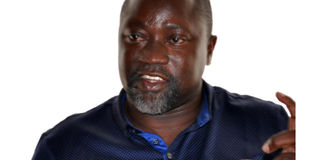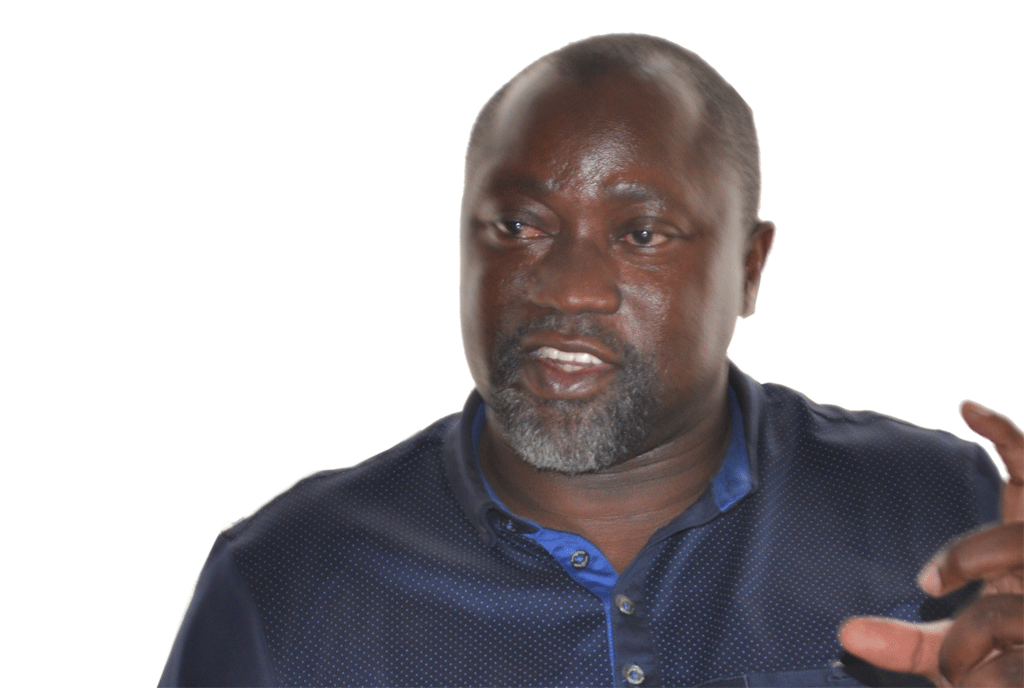Prime
Grant dependence killing our football

Mr Immanuel Ben Misagga is a football investor and businessman.
As the Confederation of African Football president Patrice Motsepe visits Uganda today, I would like to put across a few issues regarding our sport.
Over the last decade, Ugandan football has made one step ahead and two steps back. This is reflected in the results of the national team and clubs on the continent, organisation and infrastructure resources.
Today, the mere mention of domestic football arouses negative views of the current state of affairs. Unfortunately, the powers controlling the game are the least bothered.
Ugandan football has challenges such as sponsorship dependence, poor governance, growth without development, weak competition field, and shallow democracy.
One only needs to look at what is happening in the disciplines of netball, athletics and to some extent, boxing to understand why football is lagging behind.
Today, the Uganda Netball Federation (UNF) hardly gets any significant funding from the government or the International Netball Federation. In fact, most of what it relies on comes from the vote at the National Council of Sports (NCS).
Yet, in spite of the limited resources, netball, and the She Cranes in particular, continue to soar high and are ranked second on the continent and sixth globally. UNF has also desisted from forcing teams in the top-flight to have feeder teams that may spiral their expenditure.
What the Sarah Kityo-led UNF has achieved is unlimited loyalty to the sport because every stakeholder is cognizant of the financial situation and in turn, netball’s rise knows no leaps and bounds.
However, the same cannot be said of football. Our biggest challenge for national integrity is the dependence on Fifa grants and sponsorship packages. There is also a lack of good, or at least good enough, governance, minimal player development and a hunger for football democracy in an era when elections are treated as a form of window dressing. These challenges are a lethal mix not just for the football fraternity but for the country at large.
Fufa has abandoned its cardinal role of engaging in the struggles of club football, and by choosing to focus only on situations that bring in funds football has continued to suffer.
The dismal quality of Ugandan football is, of course, largely the result of Fufa’s own poor leadership and lack of will.
Yet Fifa and other sponsors also bear some responsibility for this conundrum given their deep commitments, financial and programmatic, to Fufa. There are hardly any checks and balances.
Certainly, with respect to control of corruption and impunity, Ugandan football may be further ahead now from progress than it was a decade ago when Moses Magogo took over the helm. It is also glaring that Fifa’s development assistance has made it more feasible for Fufa to divert resources and to enable corruption.
A case in point is the stalled Kadiba stadium project, which Fifa funded with $4.4m (Shs15.4b) from the Fifa Forward Programme in 2017.
This calls for Fifa’s toughness on a federation. At the moment, Fufa abandoned its duty of levying top-flight domestic games mostly due to the fact there is little income. Yet if the federation had joined hands with the clubs, there would be a sense of responsibility that creates a sense of accountability.
The challenge, then, is for Fifa to deeply scrutinise its grants to ensure they improve the game at the grassroots. But how can Ugandan football target grants to improve or benefit to domestic football?
As I have argued before, targeting grants to football development means removing—as much as possible—middlemen who stand between football interests and personal gains. Thus, grants and sponsorships must foster information, transparency, consultation, and participation in order to increase the demand for good football governance. Grant and sponsorship dependence has proven an effective and successful strategy for Fufa to overlook domestic football competitions.
Fifa and sponsors should impose stronger consequences for corruption so that Fufa is encouraged to tackle it. But all this starts with auditing the current Fifa projects in the country.
Mr Immanuel Ben Misagga is a football investor.




